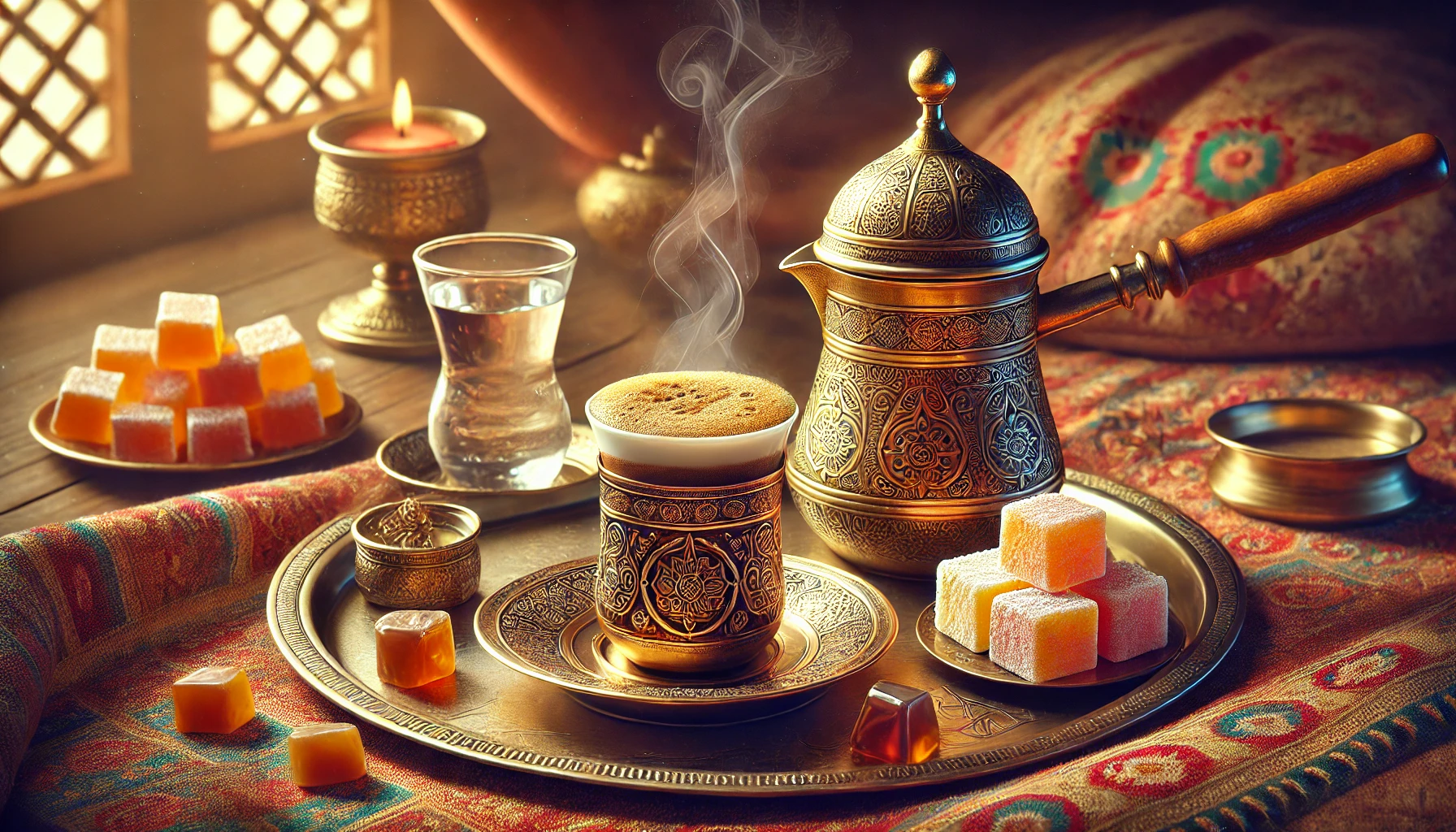Turkish coffee is more than just a method of brewing—it’s a symbol of culture, connection, and tradition. With its unfiltered texture, strong aroma, and ritualistic preparation, Turkish coffee has earned its place as one of the most iconic and enduring coffee traditions in the world. In fact, it’s so culturally significant that UNESCO recognized it as an Intangible Cultural Heritage of Humanity.
In this article, we’ll explore how Turkish coffee is made, how it’s served, and why it holds such a deep cultural meaning across generations.
What Is Turkish Coffee?
Turkish coffee refers both to a specific brewing method and the finely ground coffee used in it. It is typically brewed using a small metal pot called a cezve (or ibrik) and served in small demitasse cups, unfiltered, with the grounds settled at the bottom.
Key Characteristics:
- Extremely fine grind, almost like powdered sugar
- Unfiltered preparation, grounds remain in the cup
- Rich, strong, and thick, with foam on top
- Often served sweet, in varying levels
- Meant to be sipped slowly, often with water and sweets
A Time-Honored Brewing Method
Turkish coffee is typically brewed over low heat, often in a traditional cezve placed in hot sand or directly on a stovetop.
How It’s Made:
- Add cold water to the cezve—one small cup per person
- Add finely ground coffee (about one heaping teaspoon per cup)
- Add sugar, if desired:
- No sugar: sade
- A little sugar: az şekerli
- Medium: orta
- Sweet: şekerli
- Stir well before heating (not during)
- Heat slowly until foam rises—remove just before it boils
- Pour into cups, letting foam divide evenly
Let the grounds settle for a minute before drinking. No stirring, no filters, no rush.
Coffee as Hospitality
In Turkish culture, offering coffee is an act of respect and connection. It’s served:
- To guests as a warm welcome
- During social visits
- After meals or important conversations
- At engagement ceremonies (more on that below)
Refusing coffee is rare and sometimes considered impolite—accepting it is a gesture of goodwill.
The Coffee Engagement Tradition
One of the most famous rituals involving Turkish coffee is during marriage proposals. When a suitor visits the bride’s family to ask for her hand, the woman prepares Turkish coffee for the guests—including her potential future husband.
As a playful test, she may prepare his cup with salt instead of sugar to gauge his temperament. If he drinks it politely, it’s a good sign.
Turkish Coffee and Fortune Telling
After finishing their cup, many Turks flip it upside down on the saucer and wait for the grounds to settle into patterns. These patterns are “read” by someone who interprets them as signs of the future.
While mostly done for fun, coffee fortune-telling (tasseography) is still popular in modern Turkish culture and adds an element of mysticism to the experience.
How It’s Served
Turkish coffee is always served in small cups—similar in size to espresso cups—and often accompanied by:
- A glass of cold water, to cleanse the palate before sipping
- A piece of Turkish delight (lokum) or chocolate
- Sometimes dried fruits or nuts
The presentation is often elegant and ceremonial, with traditional cups, saucers, and sometimes ornate trays.
The Social Role of Turkish Coffee
In a world that often rushes through coffee in paper cups, Turkish coffee is about slowing down and being present. It encourages conversation, reflection, and hospitality.
Common settings include:
- Family gatherings
- Friends catching up
- Business meetings
- Cultural ceremonies and holidays
In Turkey, there’s even a saying:
“Bir fincan kahvenin kırk yıl hatırı vardır.”
(“A cup of coffee commits one to forty years of friendship.”)
Turkish Coffee Around the World
Though most associated with Turkey, this style of coffee is also deeply rooted in:
- Greece (called Greek coffee)
- Armenia
- Lebanon
- Egypt
- The Balkans
Each culture has its own variation in sweetness, spices (like cardamom), or rituals—but the essence remains the same.
Final Thoughts: More Than a Drink
Turkish coffee isn’t just about taste—it’s about time, tradition, and togetherness. It brings people together, bridges generations, and turns every sip into something meaningful.
Whether you’re sharing it with a friend, honoring a guest, or simply enjoying a quiet afternoon, Turkish coffee invites you to pause and savor more than just flavor—it invites you to savor connection.
